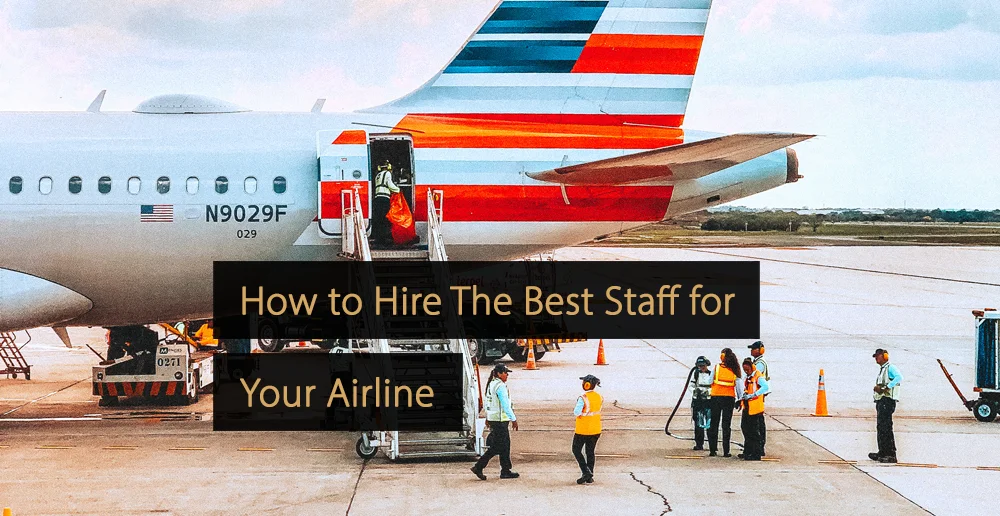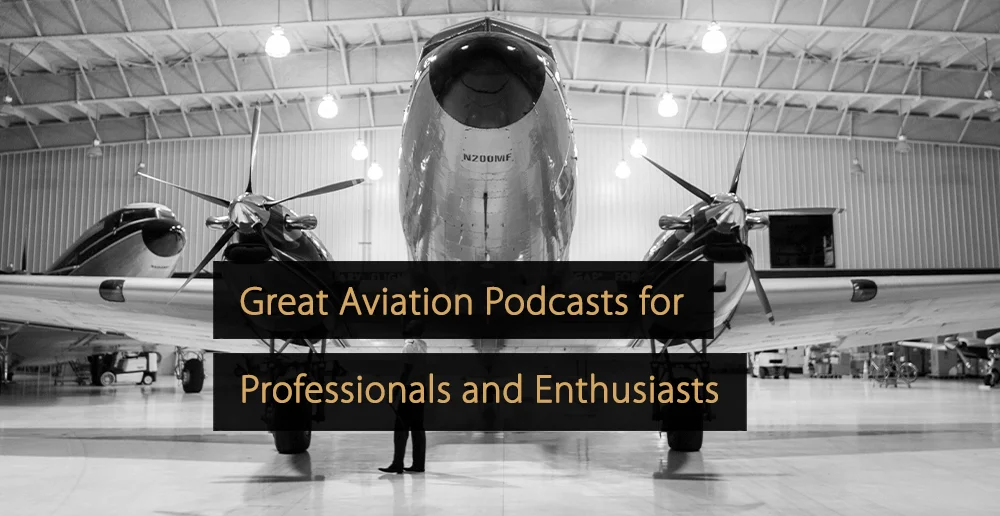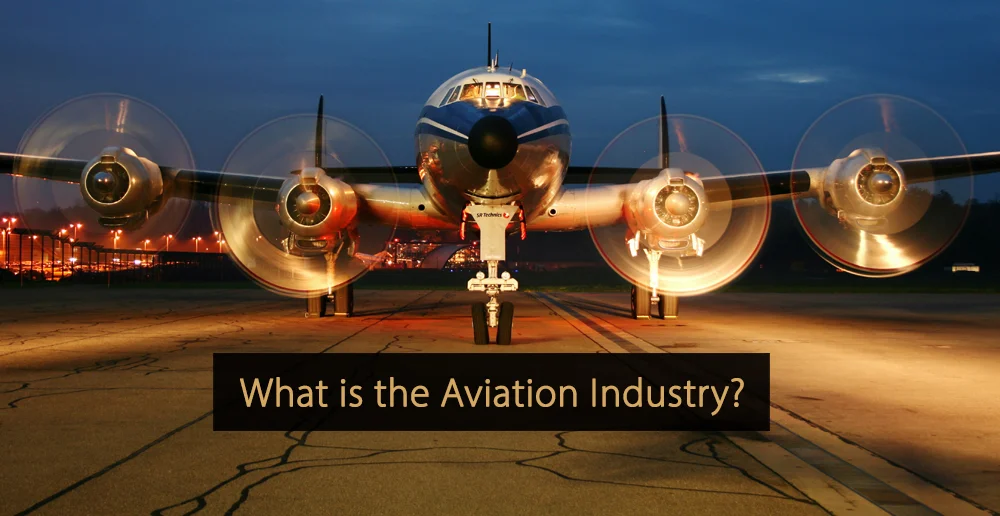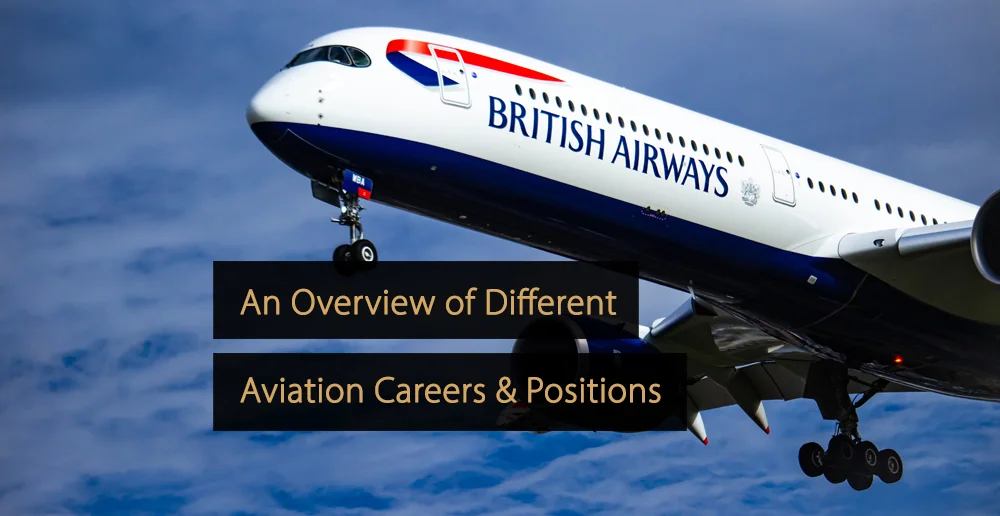If you are personally involved in hiring new airline staff, you need to take great care to ensure you are selecting the best possible candidates. This means learning how to identify the best long-term prospects and recognize red flags. Here, you can learn much more about bringing in the right recruits for your airline.
Table of Contents:
- The Reasons for Hiring Airline Staff
- Understanding the Benefits of Expanding Your Team
- 7 Tips for Hiring New Airline Staff
- 1. Clearly Explain What You Need Airline Staff to Do
- 2. Decide on the Pay and Perks for Your Airline Staff
- 3. Promote the Unique Qualities Your Airline Can Offer
- 4. Use Applications to Narrow Down the Candidates
- 5. Make Intelligent Use of Your Interview Time
- 6. Hire the Candidates With the Right Qualities
- 7. Prioritize Onboarding Your New Airline Staff Members
- How to Recruit Airline Staff
- Overview of the Main Airport Jobs Available
- Overview of the Different Airline Careers
- Airline Manager Roles Explained + Channels to Find a Job
- Tips on How to Find Flight Attendant Jobs
- Key Insights Into the Airline Industry
The Reasons for Hiring Airline Staff
You may encounter a need to hire new airline staff for many reasons. On a basic level, if one of your existing employees leaves, you are going to need to be able to contend with the extra workload, and that is usually going to require you to either find a direct replacement or create a new role that will take over many of their duties.
In some cases, you may need new airline staff to cover long-term absences, and these new recruits may either be hired on a short-term or long-term basis, depending on whether you have sufficient work for them to carry out once the absence ends. In situations where you promote someone, that may also create a vacancy in their old role.
It may also be the case that you have identified specific skills gaps in your airline, and, at times, employing someone with those skills may be more cost-effective than providing the relevant training.
Understanding the Benefits of Expanding Your Team
Aside from replacing absent or departing staff members or filling skills gaps, there are benefits associated with expanding your airline staff. For instance, increasing the number of people working in some departments may help to distribute the workload over a larger number of people, increasing the quality of the work performed.
You may have tried to reduce costs by keeping teams small, but this has resulted in you having to pay staff to work overtime. In such instances, expanding the team may become a better and more sustainable option. Moreover, bringing in new faces can also provide fresh perspectives and new ways of thinking.
7 Tips for Hiring New Airline Staff
Below, you will find seven tips that will help you through the hiring process for airline staff.
1. Clearly Explain What You Need Airline Staff to Do
Before you get fully underway with the hiring process, you need to pinpoint exactly what you need from your new recruit(s). This will mean carefully looking at gaps in your existing talent base, evaluating current performance and looking for shortcomings, then clearly defining what new airline staff you need and why.
It can be sensible to talk to department managers and find out what they think you should prioritize in your search for new airline staff. Once you have a clear idea, you will need to create a job description, which outlines what the job will entail and a person specification.
When creating the person specification, carefully consider the level of previous experience you require applicants to have, as well as the level of education. The balancing act here is making the requirements strict enough that you only receive high-quality applications but accessible enough to avoid putting people off.
2. Decide on the Pay and Perks for Your Airline Staff
One thing you need to keep in mind when hiring new airline staff is that you will potentially be competing for the same talent as other airlines. For this reason, you need to ensure your offer to them is fair and in line with what is happening in the wider aviation industry without damaging your company budget.
Decide what you will pay your new recruit(s). In many cases, it will be more appropriate to set a salary range here, rather than a specific figure, because you might want to make your final decision based on factors like level of previous experience and the training investment you need to make.
Beyond the salary or basic wage, you will also need to decide on employee perks, which are especially common within the airline industry. Think about the perks you can offer that might tempt the best talent to apply for job vacancies you have available rather than going to a rival airline or a different industry entirely.
3. Promote the Unique Qualities Your Airline Can Offer
Beyond the financial incentives you are providing employees, you will also need to consider the unique qualities that your airline has and what makes your company a desirable place to work.
On your website and in job ads, highlight aspects of your corporate culture that may appeal to candidates and think about what else you have to offer them. Perhaps the work environment you can provide is superior to rivals, or maybe you have a strong track record of promoting people from entry-level positions too much more senior roles.
Do you reward loyal airline staff? Are you willing to help people to advance their careers through education and training programs? Do you have a strong reputation among existing and former employees? Think of as many different ways you can promote the qualities of your airline so that the best candidates want to work for you.
4. Use Applications to Narrow Down the Candidates
Once you start receiving job applications and CVs or resumes, you can use these to narrow down your options and put the best potential airline staff through to the next phase. To do this, you will need to work through the various applications you receive, eliminating anyone who does not meet your criteria.
From there, you can start to think about the candidates who seem like the best potential fits with your company, and you can start to look into their applications in more depth. This may involve, for example, searching their name on Google and checking social media platforms for any potential red flags or contradictions.
You can then take the necessary steps to notify the best candidates that they are being moved on to the next stage of the hiring process, which usually involves them attending a formal job interview.
5. Make Intelligent Use of Your Interview Time
As you progress through the hiring process, you will need to think carefully about how you will conduct interviews. On a basic level, this will involve decisions like whether you want candidates to attend physically, speak on the phone, or use video calling. You also need to decide who is conducting the interviews.
You need to decide how many people to interview, which will largely depend on budget, time constraints, and the number of applications you received for the vacancy in the first place.
Next, you need to plan out what you will ask candidates, which requires you to consider what you are hoping to learn from them. Think too about the qualities needed by airline staff, which cannot be judged by looking at a CV, such as politeness, positive body language, and confidence.
6. Hire the Candidates With the Right Qualities
After completing the interview stage, you need to make decisions on who to hire. The most important thing to remember here is that you should focus on those with the qualities to be successful airline staff.
With interviews completed, you should have abundant information about the remaining candidates, and you will find even more by checking their references. There may also be an element of relying on your instincts, but to the greatest extent possible, you should try to work based on evidence.
Weigh up the skills, experience, and personal qualities that the candidates have and come to your decision. From there, you should notify the successful and unsuccessful applicants and think about when they can start work.
7. Prioritize Onboarding Your New Airline Staff Members
It is vital to understand that hiring new airline staff does not stop once you have made your final decision. New employees are going to need to learn how actually to perform the day-to-day tasks you require them to do, and they will also need to be embedded into your company culture as well.
With this in mind, you must ensure they have been presented with a work uniform and understand the corporate policy. You will need to train them to actually do their job and in things like safety procedures.
Failing to make new employees feel welcome and like they have a future in your company is one way you can start suffering from high employee turnover rates. Onboarding training cannot be a one-time thing either. Instead, you must provide continuous support for airline staff as they progress in their careers.
How to Recruit Airline Staff
When it comes to your actual approach to hiring, the following three methods are the main options available:
1. Let Recruitment Agencies Help You to Find Airline Staff
Recruitment agencies can be extremely useful in helping you to find airline staff for several reasons. Agencies specializing in this area have all of the necessary tools and experience for sourcing people seeking airline careers, and they handle much of the workload, freeing you up to focus on other things.
Read the “Aviation Management Jobs: List of Recruitment Agencies To Find a Job!” article, and you will have access to some of the best recruitment agencies for airlines to turn to for their hiring needs.
2. Make Use of Job Boards to Grow Your Team
Another option for advertising job vacancies is to post advertisements on job boards. Some of these job boards are widely used by existing airline staff or people wanting to move into the industry. Job boards can be especially useful when you are looking to attract many applicants for a position.
Check out “Airline Vacancies: List of Job Boards to Find a Job at an Airline” for an extensive list of the job boards to focus on, complete with information on the additional features each job board has to offer.
3. Find New Airline Staff Members Through LinkedIn
Finally, LinkedIn offers several useful tools for those involved in airline and aviation management. The LinkedIn Recruiter solution, for example, allows you to post jobs and include a job description along with the skills and qualities you are looking for. Other LinkedIn users can then apply for the jobs you post online.
The recruiting solutions include various pay models, suiting those who regularly post jobs and those who use the platform as a one-off recruitment tool. Furthermore, you can also use the platform to network, share stories, promote your business and attract interest from people in a more organic way too.
Overview of the Main Airport Jobs Available
Airports rely on many people to operate effectively, from airline staff and customer service staff, right the way through to security staff and air traffic controllers. With this in mind, airports provide job seekers with various opportunities to explore, with options for all stages of their careers.
Read the “Overview of the Main Airport Jobs Available” article for a more in-depth examination of the various job roles that are available within airports, along with details on what each of those jobs actually entails.
Overview of the Different Airline Careers
Airlines represent the single largest group of employers in the aviation industry, and it is important to note that airline staff occupies a range of different jobs, from entry-level positions which require little experience or formal education right the way up to highly technical roles, that will require degrees or extensive training.
Read our “Overview of the Different Airline Careers” article for more information on the career paths available within the airline industry, complete with details of the day-to-day duties and the necessary skills.
Airline Manager Roles Explained + Channels to Find a Job
The job of an airline manager involves everything from overseeing core tasks and coordinating different departments to hiring and firing airline staff and reporting to stakeholders. It is, therefore, a varied role with many responsibilities, and you will need to possess certain skills and qualifications to succeed.
Check out “Airline Manager Roles Explained + Channels to Find a Job” for much more on what an airline manager is, what day-to-day life in the job looks like, what the entry requirements are and the best channels to apply through.
Tips on How to Find Flight Attendant Jobs
Flight attendants are some of the most important airline staff and are tasked with, among other things, providing service to passengers on flights and also ensuring that travelers are safe. It is a relatively accessible career path, which provides opportunities to see the world while taking on major responsibilities.
In “Tips on How to Find Flight Attendant Jobs”, you will learn a lot more about the job of a flight attendant and the entry requirements. Meanwhile, you can also identify the main channels to find work in this field.
Key Insights Into the Airline Industry
Before applying for an airline staff member position in any role, it is sensible to find out as much as you can about the airline industry. For instance, do you know how the industry is defined and how it is different from the aviation industry? Can you explain what the different types of airlines are, or the four main business models?
By reading “Airline Industry: All You Need to Know About the Airline Sector”, you can find out the answers to these questions and many more, expanding your knowledge of airlines and the industry as a whole.
Any airline’s success will depend on the quality of its employees, so you must make the right decisions in this regard. By following the tips provided and using a combination of different channels to source candidates, you can ensure you are hiring the best possible airline staff for your organization.
More Tips to Grow Your Business
Revfine.com is the leading knowledge platform for the hospitality and travel industry. Professionals use our insights, strategies, and actionable tips to get inspired, optimize revenue, innovate processes, and improve customer experience.Explore expert advice on management, marketing, revenue management, operations, software, and technology in our dedicated Hotel, Hospitality, and Travel & Tourism categories.
This article is written by:
Hi, I am Martijn Barten, founder of Revfine.com. With 20 years of experience in the hospitality industry, I specialize in optimizing revenue by combining revenue management with marketing strategies. I have successfully developed, implemented, and managed revenue management and marketing strategies for individual properties and multi-property portfolios.









Leave A Comment